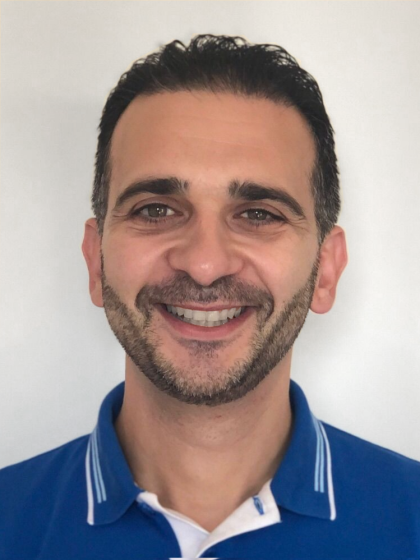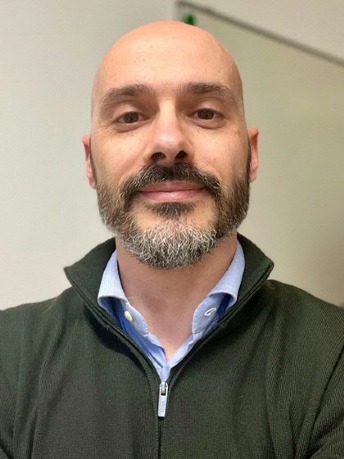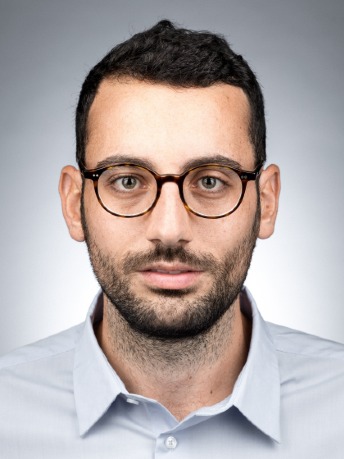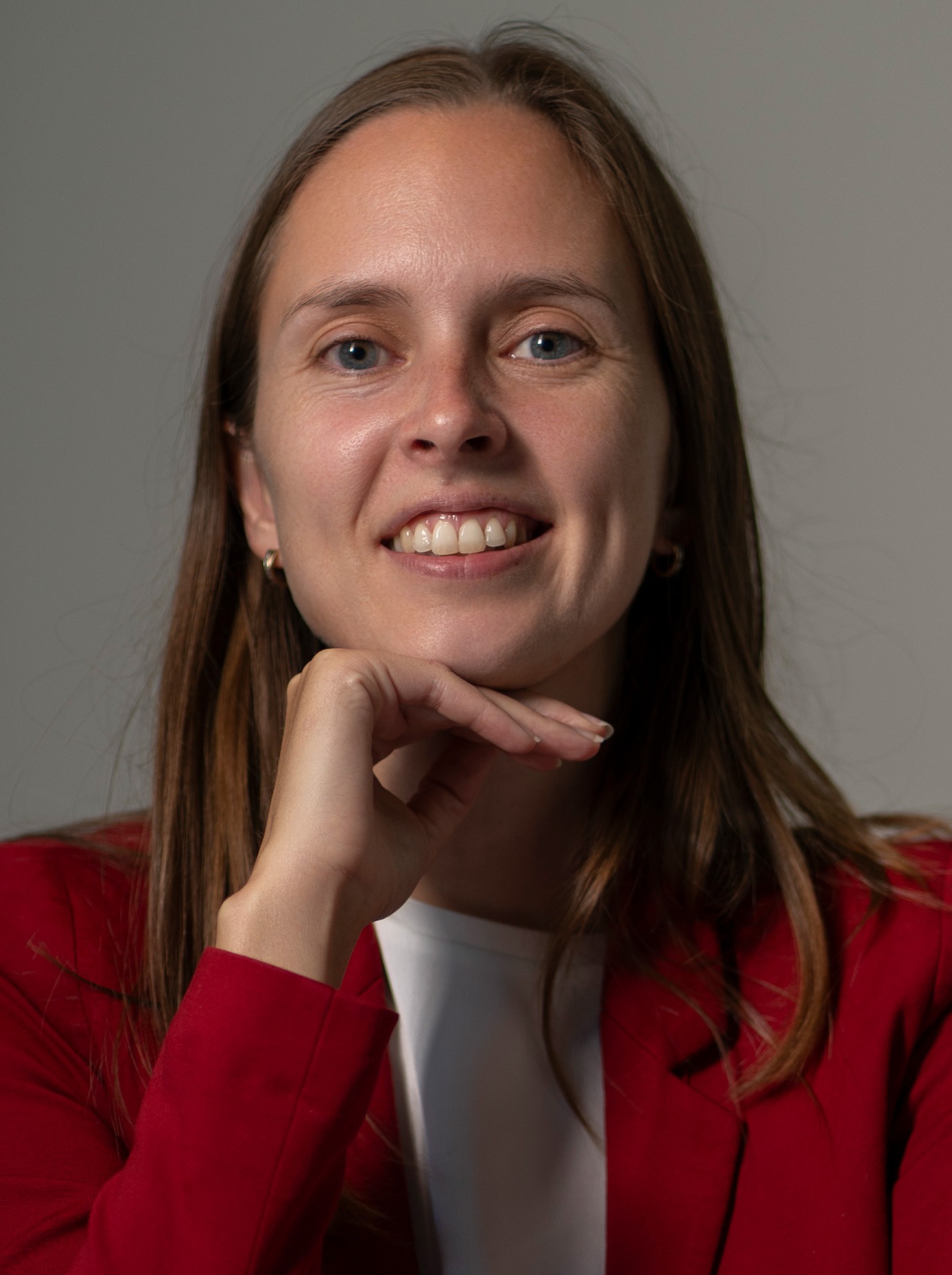Theme Coordinators
Overview coordinators
-
George Azzopardi - Applied AI
-
Tommaso Caselli - Language & AI
-
Michele Cucuzzella - Twin Transition
-
Oskar Gstrein - Digital Sovereignty & Data Autonomy
-
Ronald Stolk - Digital Sovereignty & Data Autonomy
-
Peter van Ooijen - Digital Healthcare
-
Joëlle Swart - Digital Literacy & Inclusion

George Azzopardi
Theme: Applied AI
The remarkable progress in artificial intelligence (AI) is transcending boundaries and finding invaluable applications across diverse academic disciplines. Recognizing the transformative potential of AI, we are proud to introduce the new theme, 'Applied AI', at the Jantina Tammes School. This initiative reflects our commitment to harnessing AI's power to foster interdisciplinary collaboration and to drive innovation and advancements in fields such as natural sciences, engineering, healthcare, environmental science, economics, social sciences, and more.
Our goal is to unite academics from various disciplines, students, and industry professionals under the central theme of Artificial Intelligence. Through a series of events, workshops, and seminars, we aim to inspire and facilitate collaborations among academics, encouraging them to explore the transformative potential of AI within their respective fields. Furthermore, we believe in the importance of nurturing the talents of our students, providing them with opportunities to engage with cutting-edge AI technologies and methodologies. As we embark on this journey, we also seek to strengthen our ties with industry partners, creating a mutually beneficial relationship where academic research meets real-world applications.
In conclusion, the introduction of the 'Applied AI' theme at the Jantina Tammes School underscores our unwavering commitment to fostering interdisciplinary collaboration. By uniting academia, students, and industry, we are poised to leverage the transformative potential of AI to drive innovation across a multitude of fields, further emphasizing the pivotal role of collaboration in shaping a brighter future.

Tommaso Caselli
Theme: Language & AI
The relationship between human language (in all its modalities: spoken, written, or signed) and Artificial Intelligence (AI) has become a crucial and dynamic topic due to the impressive results current AI technologies have achieved.
Human language technologies have become pervasive: machine translation is used to mitigate language barriers, chatbots are increasingly deployed to support clients, virtual assistants have become part of our daily activities. We are relying more and more on machines that are designed to mimic human’s communication style. All of this does not come free from potential negative consequences when it comes to perpetration of biases, stereotypes, and the reliability of information that is returned.
The theme develops around three core issues:
-
Reinforcing the coordination of the educational programs about/related to AI and language;
-
Facilitating the access to these technologies while integrating the perspectives and needs of different disciplines together;
-
Promoting awareness of the possibilities and risks of these technologies in real-life situations, using evidence to inform the general public about them.
This theme can advance a 'digital well-being for everyone by reducing communication barriers, innovating education, and supporting the creation of responsible, equitable, and innovative businesses.

Michele Cucuzzella
Thema: Twin Transition
Twin transition highlights the interplay of digital technologies and energy systems in the transition to a sustainable society. Michele Cucuzzella is aware that the use of digital technology is both an opportunity and a threat.
An example of this is artificial intelligence: on the one hand, it is a major consumer of energy, but on the other hand, AI plays a crucial role in making predictions that can optimize energy efficiency. He stresses that AI should not be used to control systems. ‘It is not sufficiently robust for that. But it doesn’t have to be 100 percent accurate for predictions. If we can optimize our energy efficiency at least partially, that’s already a win.’
In the coming years, Cucuzzella aims to collaborate with the Schools to gather information. ‘Based on this, we will develop a roadmap for the twin transition in the province of Groningen.’ Cucuzzella dreams of creating fully autonomous energy systems. This could lead to significant improvements in comfort, efficiency, sustainability, and affordability of energy. ‘It is important that this is tailor-made. Everyone has their own needs: one person may set the temperature to 19 degrees, while for others, that would be too cold. It’s crucial that people don’t lose control and can set their own boundaries.’

Oskar Gstrein
Theme: Digital Sovereignty & Data Autonomy
Without data, there would be no emails, no shared agendas, no (video) calls, no notifications, no documents, no assignments, no diplomas, no research content. I could not write these words and they would not be easily accessible to a wide audience without data. This is so 'normal' that we hardly ever think about it - and this is exactly what the Data Autonomy theme is trying to change.
The theme allows for an interdisciplinary and holistic view of data governance issues, including aspects such as data protection, international data flows and strategic autonomy, or the human-centered design of emerging technologies such as artificial intelligence.
The theme is inspired by fundamental and conceptual academic research, but also aims to raise awareness of data use and infrastructures, and to create a shared understanding of what a 'datafied' university should look like. This includes answering questions such as
-
How can we provide students with an environment that fosters individual learning, personal growth and the freedom to fail, without subjecting them to lifelong data profiling and tracking ('cut the data trail')?
-
How can we, as an academic community, maintain a significant stake in shaping public-interest scientific research practices, driven by the curiosity and talent of independent academics rather than the interests of (big) technology companies?
-
How can we use datafication in academic settings to support progressive approaches to social justice and diversity?

Ronald Stolk
Theme: Digital Sovereignty & Data Autonomy
Digital sovereignty is about having control over the digital environment. This means having control, direction and freedom of choice over:
-
storage, security and processing of data
-
AI algorithms and underlying models
-
digital identity and access to applications
Public money should be spent on things that create public value, ensuring that the benefits of scientific research and education are shared by all. Determining how the university's digital environment is organised is just like working out how university buildings are organised – it's important to work this out for yourself.
Digital sovereignty is vital to protect public values in education and research (such as autonomy, justice and humanity). It also allows for innovation, as it enables you to customise the digital environment. For example, you could develop an AI tool within the learning environment based on faculty data sources.
The university is currently dependent on big tech companies for a large part of its digital environment. The influence of these companies on education and research, plus the power they wield through the enormous amounts of user data they manage, poses an increasing risk given current geopolitical developments. This makes digital sovereignty a strategic priority for the University of Groningen.
The JTS works with the theme of digital sovereignty to develop scientific knowledge on this interdisciplinary subject and to apply it at the University of Groningen and other organisations.

Peter van Ooijen
Theme: Digital Healthcare
I am honoured to take on the role of Theme Coordinator for 'AI and Medical Sciences' at the Jantina Tammes School (JTS) for Digital Society, Technology and AI. This theme is of great importance in today's ever-changing landscape, where the integration of AI into the medical sciences promises to redefine healthcare.
The potential of AI in the medical field, including prevention, diagnostics, drug discovery, and personalised treatments, is nothing short of extraordinary. It has the capacity to speed up diagnoses, improve treatment methods and streamline healthcare operations. Moreover, it provides healthcare professionals with data-driven tools, bringing benefits to both patients and doctors. The JTS's unwavering commitment to promoting interdisciplinary collaboration makes the institute an ideal hub for exploring this topic. AI in the medical sciences cuts across different disciplines and the diverse expertise within the JTS enables us to address the complex challenges that arise at this intersection.
Moreover, the JTS's commitment to innovation aligns seamlessly with the advancement of AI in the medical sciences. We aim to foster cutting-edge research, nurture emerging talent and facilitate knowledge exchange among the faculty, students and external stakeholders. We will achieve this through a series of engaging seminars, interactive workshops and pioneering research initiatives, creating a vibrant community.
In short, 'AI and medical sciences' is crucial for shaping the future of healthcare and perfectly aligns with the overarching goals of the Jantina Tammes School. I am thrilled to lead this initiative and build a community working together to transform AI for healthcare and improve society.

Joëlle Swart
Theme: Digital Literacy & Inclusion
Being able to deal with ICT has become a prerequisite for citizens to participate in today’s digital society. Governments, companies and employers increasingly expect citizens to communicate online, for example when requesting rent benefit, renewing their ID, or applying for unemployment benefits.
Yet, being digitally literate is far from self-evident. In The Netherlands alone, an estimated number of 2,5 million people are lacking basic (digital) skills, such as being able to use a PC or using messaging services (Algemene Rekenkamer, 2016). Due to the ongoing digitalization of almost all areas of everyday life, from work to health care and education, these citizens are increasingly at risk of being socially excluded.
While current interventions for promoting digital literacy often focus on elderly or low-literate adults, there are many other groups, such as young people or employees, that do not necessarily have the ability to critically, mindfully and actively deal with digital media. Yet, in-depth knowledge about how individuals develop digital literacy, what barriers prevent their participation in the digital society, and what conditions promote digital inclusion is still lacking.
Researchers at the UG from various disciplines are working to address this major societal issue, often in collaboration with societal partners such as schools, libraries, child care organizations and SMEs. The new Digital Inclusion working group of the Jantina Tammes School connects all of these parties. By bringing together knowledge from different fields, we can develop more informed strategies for supporting citizens’ digital literacy, in order to foster digital inclusion more systematically.

